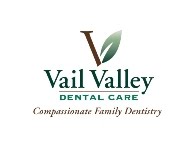Dental health affects children very early in their life – perhaps earlier than you would suspect. Research has shown a relationship between a mother’s dental health and the baby’s birth. The baby’s primary and permanent teeth begin their development in the womb. Also, according to the American Academy of Periodontology, women with gum disease or tooth infections may be seven times more likely to have their babies too early and with low birth weight.
Beyond birth, cavity-causing bacteria can be spread to babies and children. Unknowingly, parents can "infect" their babies with tooth bacteria from their own saliva when kissing or sharing food, on silverware or tooth brushes. This shows the importance for parents to have a healthy mouth, reducing the risk of transferring the bacteria that causes tooth decay to their child.
General health is linked to dental health – in children and adults. In children, any dental decay or pain can cause problems when eating, speaking, with self-esteem, and other daily activities. Severe decay can also affect growth and development. Dental pain can hinder learning when pain may cause an inability to concentrate in school. When kids have a healthy mouth, they are more confident in their appearance.
Prevention and early intervention is always best and are the foundation for a lifetime of good oral health! Being preventive can result in less expense and reduce the amount of treatment needed. Preventive dentistry begins with the very first tooth. Once the first tooth erupts, parents should start daily cleanings. A dental home should be established no later than 12 months of age. The earlier the dental visit, the better the chance of preventing dental disease and helping your child build a cavity-free smile. Consider the positive effects of having the child comfortable and confident when going to the dentist.
Visiting the dentist regularly will help your child stay cavity-free. Food and bacteria build up in the crevices within the mouth, placing your child in danger of tooth decay. Teeth cleanings allow for debris to be removed from the teeth, which can irritate the gums and cause decay. Fluoride treatments renew the fluoride content in the enamel, strengthening teeth and preventing cavities. Sealants “seal out” food and plaque from the natural pits and grooves on teeth, thus reducing the risk of decay. Hygiene instructions improve your child's brushing and flossing, leading to cleaner teeth and healthier gums.
After a general dentist or pediatric dentist has completed a thorough oral examination, they can design a preventative program for home care and educate both you and your child. A good home care program includes brushing and flossing instructions, diet counseling and, if necessary, fluoride recommendations. By following these recommendations, you can help give your child a lifetime of healthy dental habits and smiles.
February is National Children’s Dental Health Month. This is the first is a series of four articles that will help raise community awareness about the importance of oral health in kids. Dr. David Maloley is the owner of Vail Valley Dental Care in Avon. For more information call 970.949.3331 or visit www.vailvalleydentist.com
Wednesday, February 10, 2010
Subscribe to:
Post Comments (Atom)


No comments:
Post a Comment